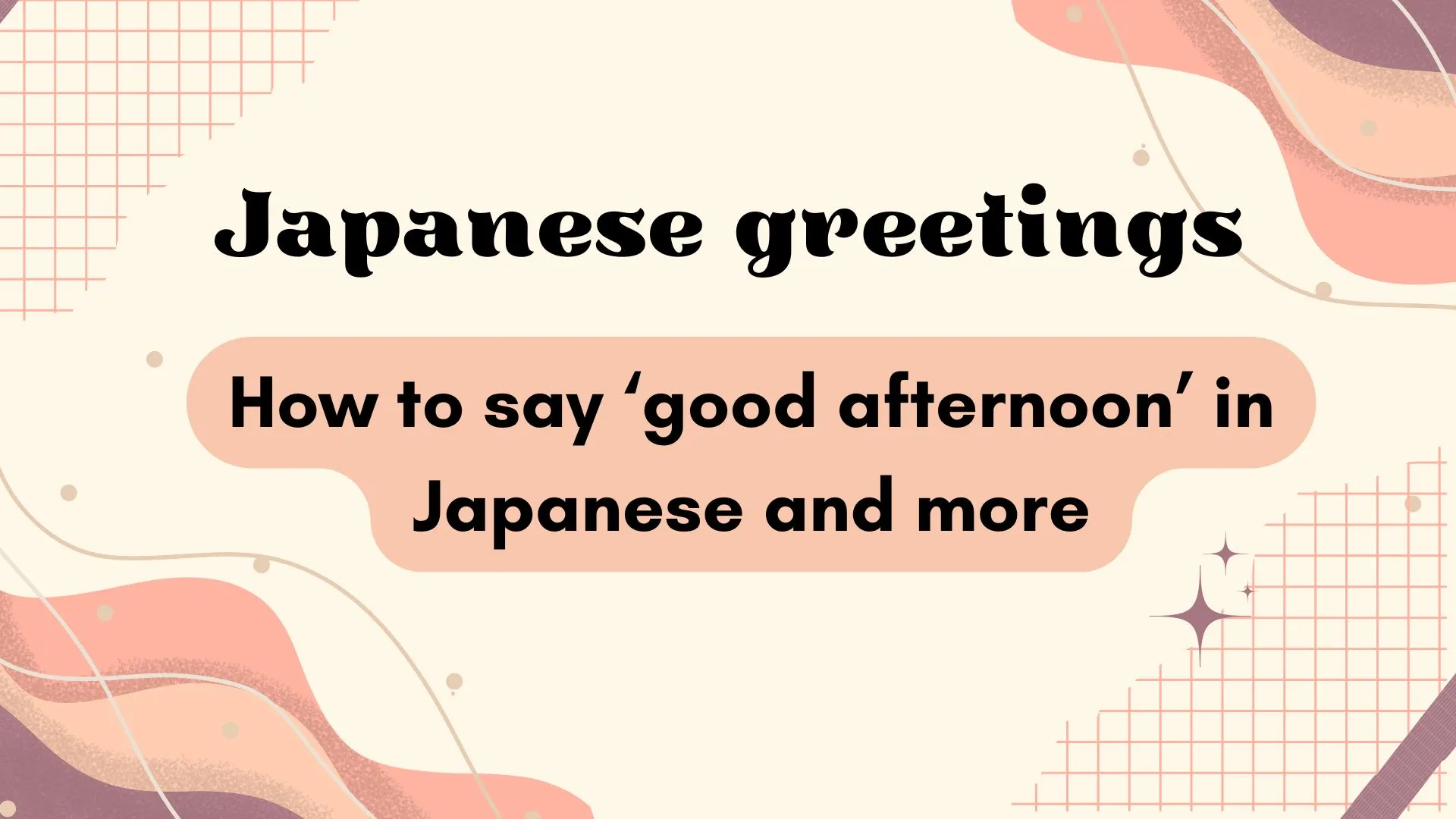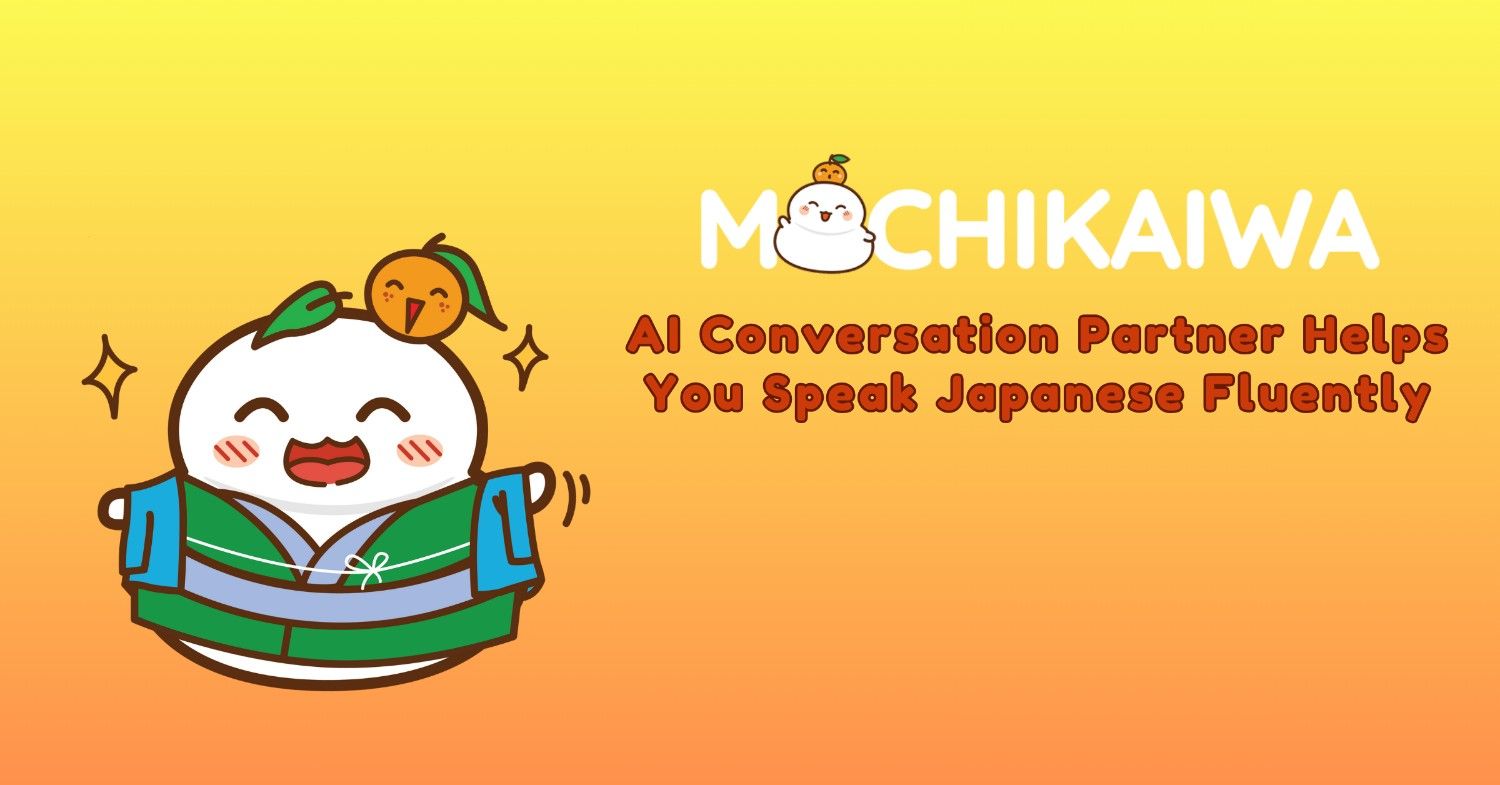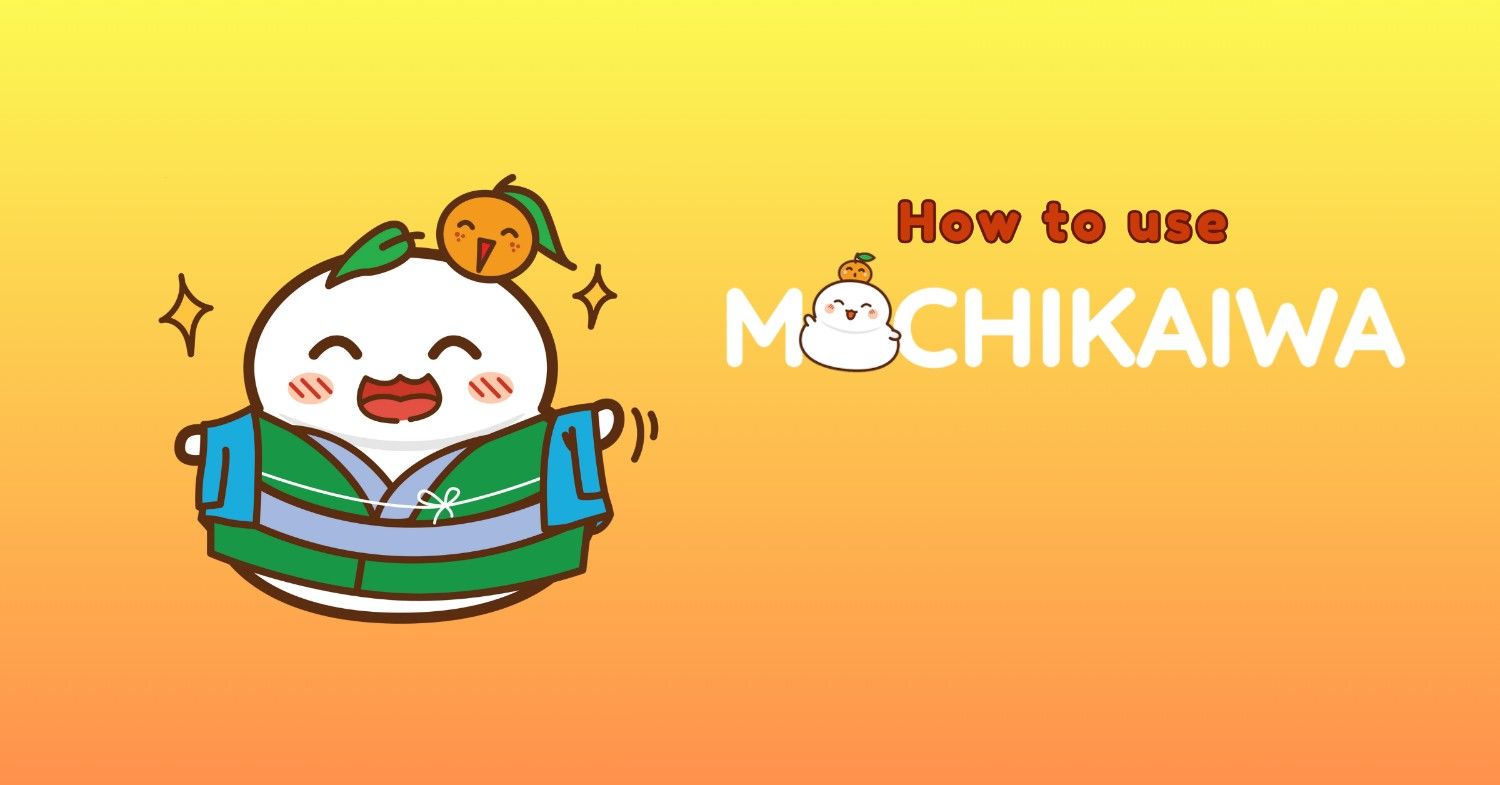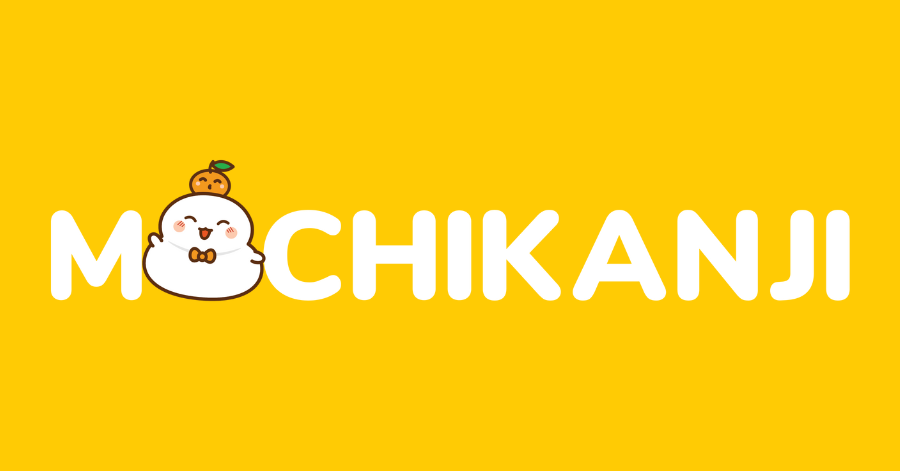Planning a trip to Japan and want to make the most of your experience? Common Japanese Phrases for your upcoming trip to Japan will equip you with the essential language skills to navigate your travels confidently. Whether you’re ordering mouth-watering sushi, asking for directions in bustling cities, or shopping in traditional markets, knowing these common phrases will enhance your experience and interactions. This article will provide you with a comprehensive list of 50+ common Japanese phrases for travel and communication in Japan. Let’s learn and equip ourselves with a rich vocabulary to have fluent and stress-free Japanese conversations when traveling in Japan.
- Essential Japanese words and phrases
- Japanese greeting phrases: Getting to know each other
- Japanese phrases for asking and giving directions
- Food and drinks: How to order and appreciate food in Japanese
- Japanese phrases for shopping
- Japanese phrases to use in emergencies
- Tips for stress-free Japanese conversations
- Basic Japanese phrases are just the beginning

Essential Japanese words and phrases
Knowing a few basic Japanese sentences is a must, especially if you stray away from a main tourist area. Here are some basic Japanese words you could use.
- こんにちは (Konnichiwa) – Hello
こんにちは (Konnichiwa) is used to say “hello” in the afternoon, typically from around 11 AM to around 5 PM. It is a common and polite greeting. People in Japan greet one another with a bow. A bow can range from a modest nod of the head to a deep waist bend.
- ありがとうございます (Arigatou gozaimasu) – Thank you
This is a formal and polite way of saying “thank you” in Japanese. It is used in situations where you want to show respect and gratitude.
- すみません (Sumimasen) – Excuse me / I’m sorry
This versatile phrase can mean “Excuse me,” “I’m sorry,” or be used to express your gratitude or start a conversation. Whether you’re catching someone’s attention in a busy train station or apologizing for a minor inconvenience, “Sumimasen” is your go-to phrase for maintaining the harmony of your interactions.
- おねがいします (Onegaishimasu) – Please
Onegaishimas is a polite way to say “please” in Japanese. It is used when making a request or asking for a favor.
- おはようございます (Ohayou gozaimasu) – Good morning
This phrase is only used in Japanese if you wake before 11 am. If you want to say it casually, you can simply say “Ohayou” and drop the formal expression “gozaimasu.”
- こんばんは (Konbanwa) – Good evening
To be used from late afternoon (around 5pm) into the evening hours.
- はい (Hai) – Yes
- いいえ (Iie) – No
- はじめまして (Hajimemashite) – Nice to meet you
- さようなら (Sayounara) – Goodbye
- 美しい (Utsukushii) – Beautiful
- もしもし (Moshi moshi ) – Hello (but only if you’re on the phone or something like Skype)
Japanese greeting phrases: Getting to know each other
You’ve been talking with someone for a few minutes now, introducing yourself and asking any questions you need to know. Maybe you’ve found out your speaking partner’s name and you’re walking to a coffee shop together.
Now’s the perfect time to find out more about each other and maybe become friends. Try out some of these phrases to open up a whole new avenue of conversation!
- お名前は何ですか。 (Onamae wa nan desu ka?) – What is your name?
- 私の名前は__です (Watashi no namae wa _____ desu) – My name is ______
- お元気ですか? (Ogenki desu ka?) – How are you?
- げんきです (Genki desu) – I’m fine.
- 私は__から来ました (Watashi wa ______kara kimashita ) – I’m from _____
- 今何時ですか (Ima nanji desu ka?) – What time is it right now?
- 何歳ですか ( Nansai desu ka? ) – How old are you?
- どこに住んでいますか (Doko ni sundeimasu ka? ) – Where do you live?
- 兄弟がいますか (Kyoudai ga imasu ka?) – Do you have siblings?
- これはなんですか (Kore wa nan desu ka? ) – What is this?
- それはなんですか (Sore wa nan desu ka?) – What is that?
Japanese phrases for asking and giving directions
Navigating a new city can be daunting, but with a solid grasp of basic Japanese phrases, you can confidently ask for and give directions. In this guide, we will cover a variety of expressions that will enable you to ask for directions, understand responses, and even provide directions to others.
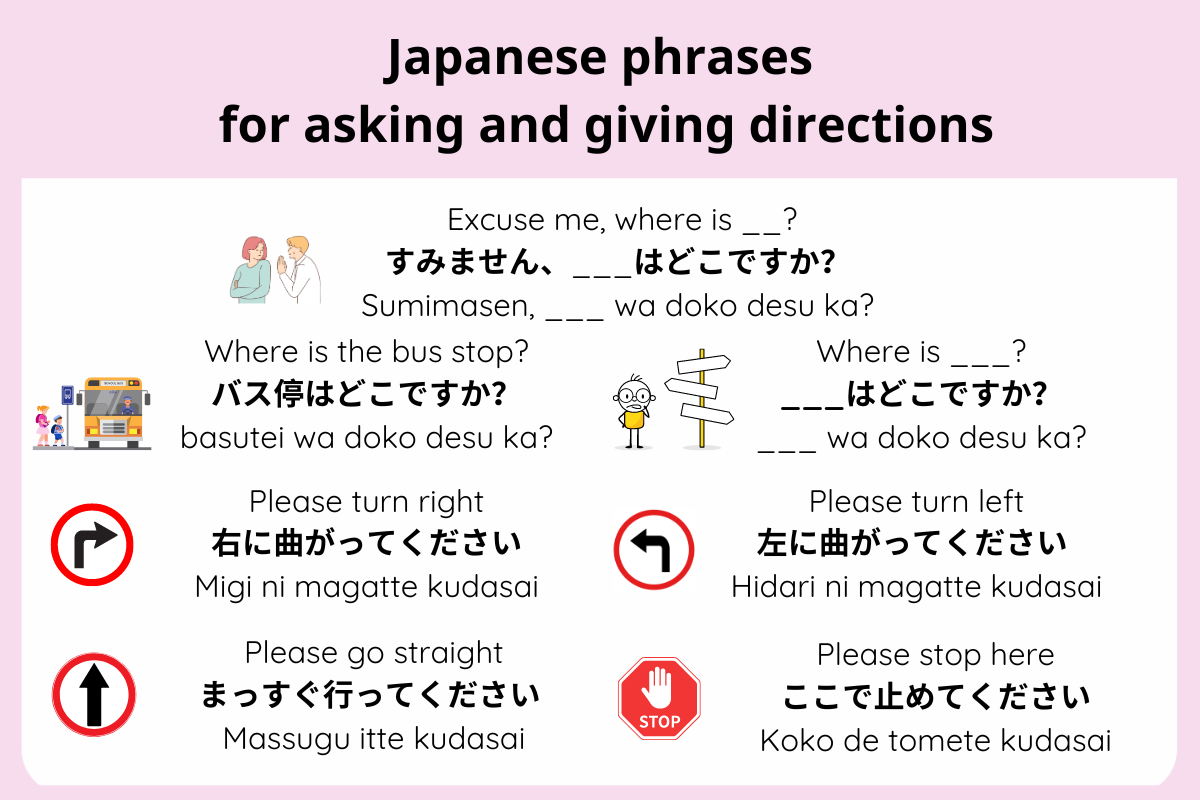
- ___はどこですか? (___ wa doko desu ka?) – Where is___?
- バス停はどこですか? (basutei wa doko desu ka?) – Where is the bus stop?
- すみません、___はどこですか? (Sumimasen, ___ wa doko desu ka?) – Excuse me, where is __?
- 右に曲がってください (Migi ni magatte kudasai) – Please turn right.
- 左に曲がってください (Hidari ni magatte kudasai) – Please turn left.
- まっすぐ行ってください (Massugu itte kudasai) – Please go straight.
- ここで止めてください (Koko de tomete kudasai) – Please stop here.
These are the most basic and common Japanese phrases for asking and giving directions. Mastering these phrases will help you confidently ask for directions, find a place you want to go, or even give directions to others. You can learn more common phrases for giving directions in MochiKanji’s conversation course.
Try it for free now!
Food and drinks: How to order and appreciate food in Japanese
Japan has an incredible food culture and history. Indeed, the capital, Tokyo, boasts the most Michelin-starred restaurants globally. Moreover, Japanese people indulge in a rich tapestry of culinary delights, encompassing both Washoku (和食: Traditional Japanese food) and Youshoku (洋食: Japanese food inspired by Western food).Here are some basic Japanese words that are related to how to order and rate dishes in Japanese.
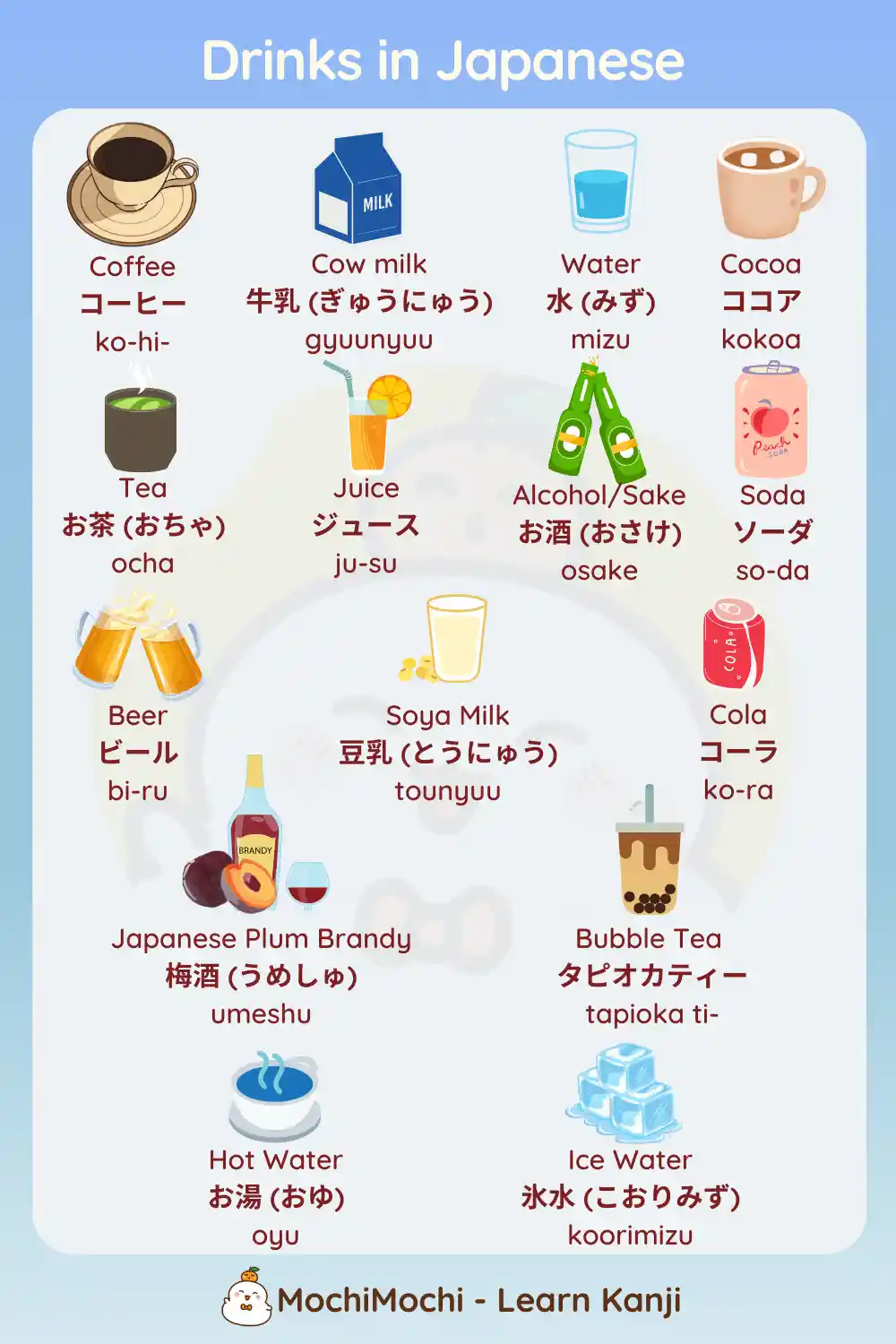
- いただきます (Itadakimasu) – An expression of gratitude spoken before the first bite
Just as the dining experience in Japan extends beyond taste to encompass cultural rituals, “itadakimasu” is more than a mere phrase; it’s a heartfelt expression of gratitude spoken before the first bite, symbolizing the humility of saying ‘I humbly receive’.
- メニューをください (Menyuu wo kudasai) – Please give me the menu.
- おすすめは何ですか (Osusume wa nan desu ka) – What do you recommend?
- お水をお願いします ( O-mizu wo onegai shimasu) – Water please
- これをください (Kore wo kudasai) – I’ll have this, please.
- 美味しいです (Oishii desu) – It’s delicious.
- __をください ( __ wo Kudasai) – I would like ___, please
- お会計をお願いします (Okaikei wo negaishimasu ) – The check, please.
- 美味しい (Oishii) – Delicious
- ワイン (Wain) – Wine
- ビール (Biiru) – Beer
- 日本酒 (Nihonshu) – Japanese sake
Japanese phrases for shopping
Imagine strolling through the vibrant streets of Harajuku, surrounded by trendy shops and unique boutiques. With a few simple Japanese phrases, you can confidently navigate the bustling crowds and find the perfect souvenir. In this guide, we’ll provide you with the vocabulary and sentence patterns necessary to shop with ease in Japan, from asking for recommendations to making a purchase.
- いくらですか? ( Ikura desu ka?) – How much is this?
- 安くなりますか? (Yasuku narimasu ka?) – Can you make it cheaper?
- これを見せてください (Kore wo misete kudasai) – Please show me this.
- 試着できますか? (Shichaku dekimasu ka?) – Can I try this on?
- これを買います (Kore wo kaimasu) – I’ll buy this.
Japanese shopping culture has many unique characteristics. Learning how to communicate in Japanese while shopping will help you gain a deeper understanding of Japanese consumer culture. You can learn practical conversational phrases to confidently shop at any store at Mochikanji’s communication course.
Start learning now!
Japanese phrases to use in emergencies
Emergencies can happen anywhere, anytime. Knowing a few basic Japanese phrases can be lifesaving in a crisis. Let’s explore some essential expressions used for calling for help and communicating in emergency situations.
- 助けて! (Tasukete!) – Help me.
- 警察を呼んで下さい (Keisatsu wo yonde kudasai) – Please call the police.
- 救急車を呼んで下さい (Kyuukyuusha wo yonde kudasai) – Please call an ambulance.
- 病院はどこですか? (byouin wa doko desu ka?) – Where is the hospital?
- 道に迷いました (Michi ni mayoimashita) – I’m lost.
- 痛いです (Itai desu) – It hurts!
Tips for stress-free Japanese conversations
These 50 phrases are the perfect start to speaking Japanese. That’s because they’re very common. Japanese people use them every day.
Practice Regularly: Consistency is key. Spend a little time each day practicing your speaking skills. Even just 10-15 minutes can make a big difference.
Start Simple: Begin with basic phrases and gradually move to more complex sentences. Don’t worry about making mistakes; it’s all part of the learning process.
Listen and Repeat: Listen to native speakers through podcasts, videos, or language exchange partners. Repeat what you hear to improve your pronunciation and fluency. Watch this video to learn 100 common Japanese words that will help boost your vocabulary quickly and effectively.
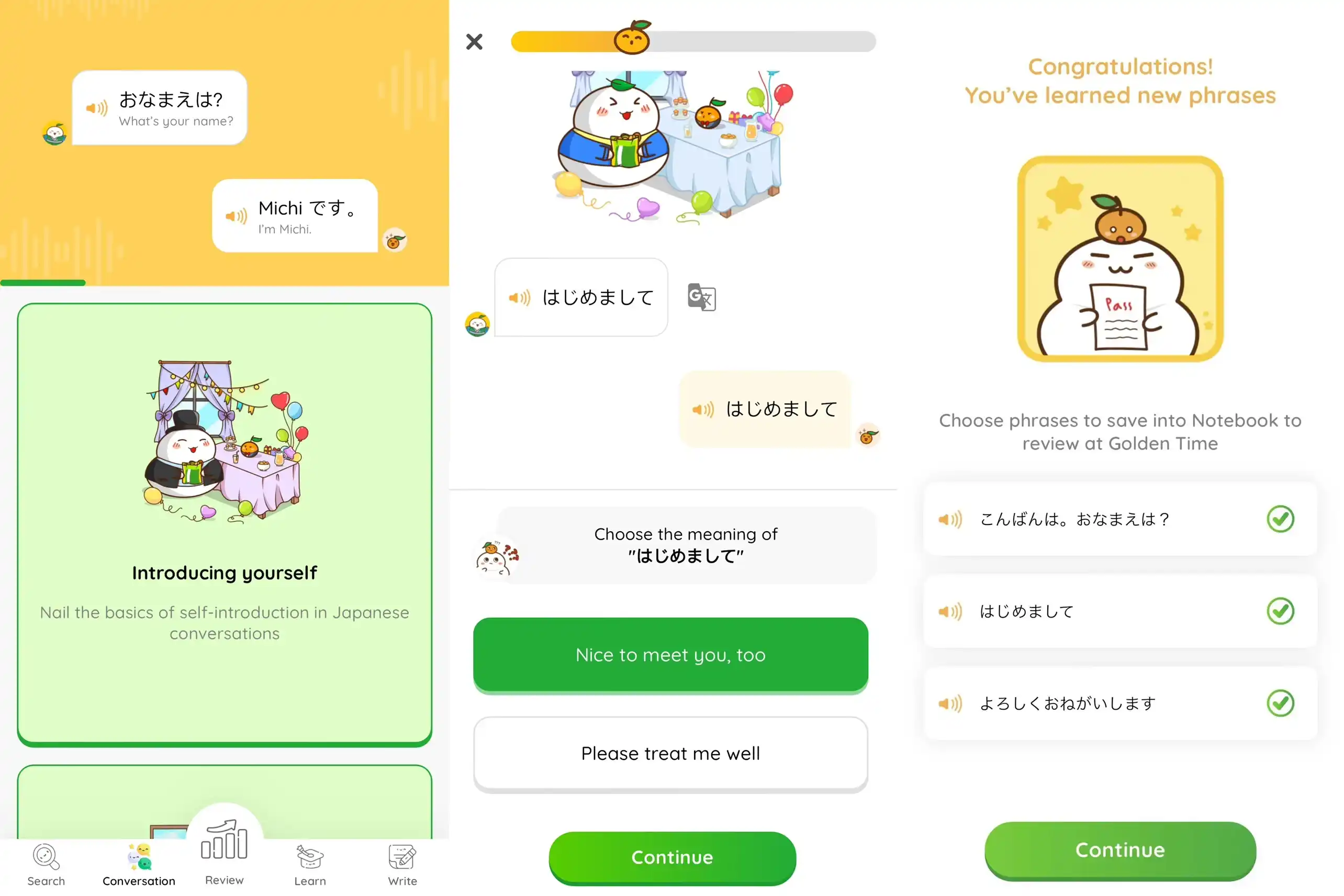
Use online application or website: An effective tool to help you overcome difficulties when learning Japanese is MochiKanji. With MochiKanji, you will easily grasp both basic and advanced principles of Japanese communication, helping you interact more confidently in a Japanese cultural environment. MochiKanji has a “Golden Time” feature based on the famous “Spaced Repetition” memorization method to determine the best time to review a lesson, based on the likelihood of success and the time elapsed since the previous study.
Basic Japanese phrases are just the beginning
By familiarizing yourself with these common Japanese phrases, you’ll be better prepared to navigate various situations during your trip to Japan. From dining in local restaurants to asking for directions and handling emergencies, these phrases will help you communicate effectively and make your travel experience more rewarding. Practice regularly, and don’t be afraid to use these phrases in real-life situations. Wishing you safe travels and enjoying your adventures.


